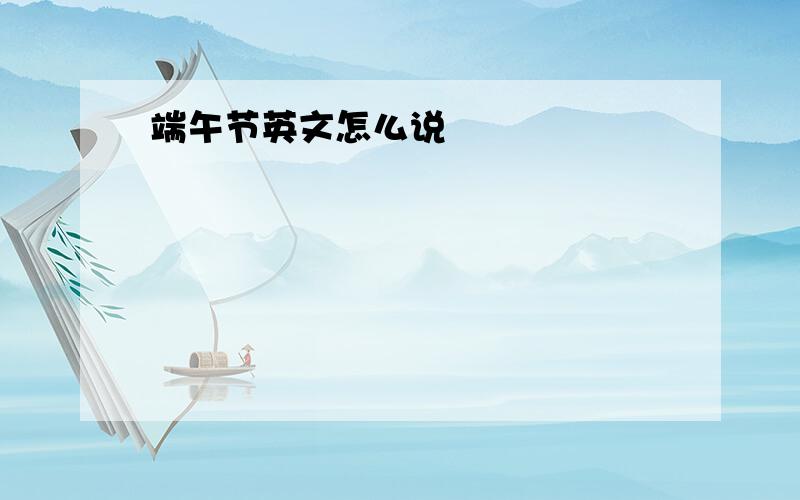端午节英文怎么说
来源:学生作业帮助网 编辑:作业帮 时间:2024/11/28 08:59:42

端午节英文怎么说
端午节英文怎么说
端午节英文怎么说
Dragon Boat Festival 是正宗的译法.
下面是英文百科关于端午节的介绍, 有很多新词参考.
Duanwu Festival (Chinese: 端午节), also known as Dragon Boat Festival, is a traditional and statutory holiday associated with Chinese and other East Asian and Southeast Asian societies as well. It is a public holiday in Taiwan, where it is known by the Mandarin name Duānwǔ Jié, as well as in Hong Kong and Macau, where it is known by the Cantonese name Tuen Ng Jit. In 2008, the festival was restored in China as an official national holiday.[1][2] The festival is also celebrated in countries with significant Chinese populations, such as in Singapore and Malaysia. Equivalent and related festivals outside Chinese-speaking societies include the Kodomo no hi in Japan, Dano in Korea, and Tết Đoan Ngọ in Vietnam.
The festival occurs on the fifth day of the fifth month of the lunar calendar on which the Chinese calendar is based. This is the source of the alternative name of Double Fifth.[3] In 2009 this falls on May 28 and in 2010 on June 16. The focus of the celebrations includes eating the rice dumpling zongzi, drinking realgar wine, and racing dragon boats.
In May 2009, the Chinese government nominated the festival for inclusion in UNESCO's global "Intangible Cultural Heritage" list,[4] partly in response to South Korea's successful nomination of the Dano festival in 2005 which China criticised as "cultural robbery".[5]